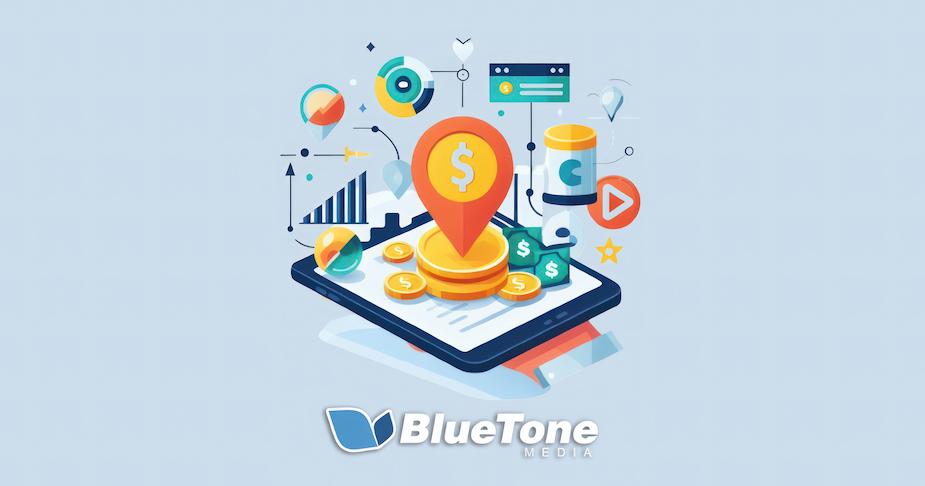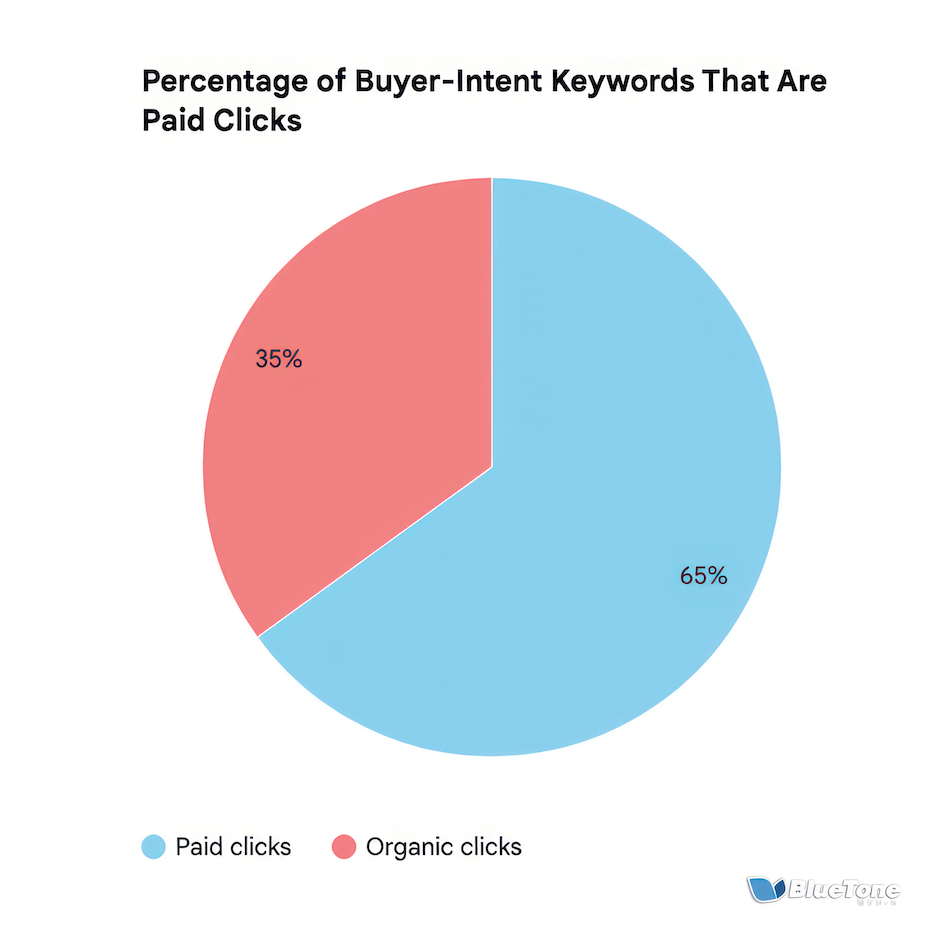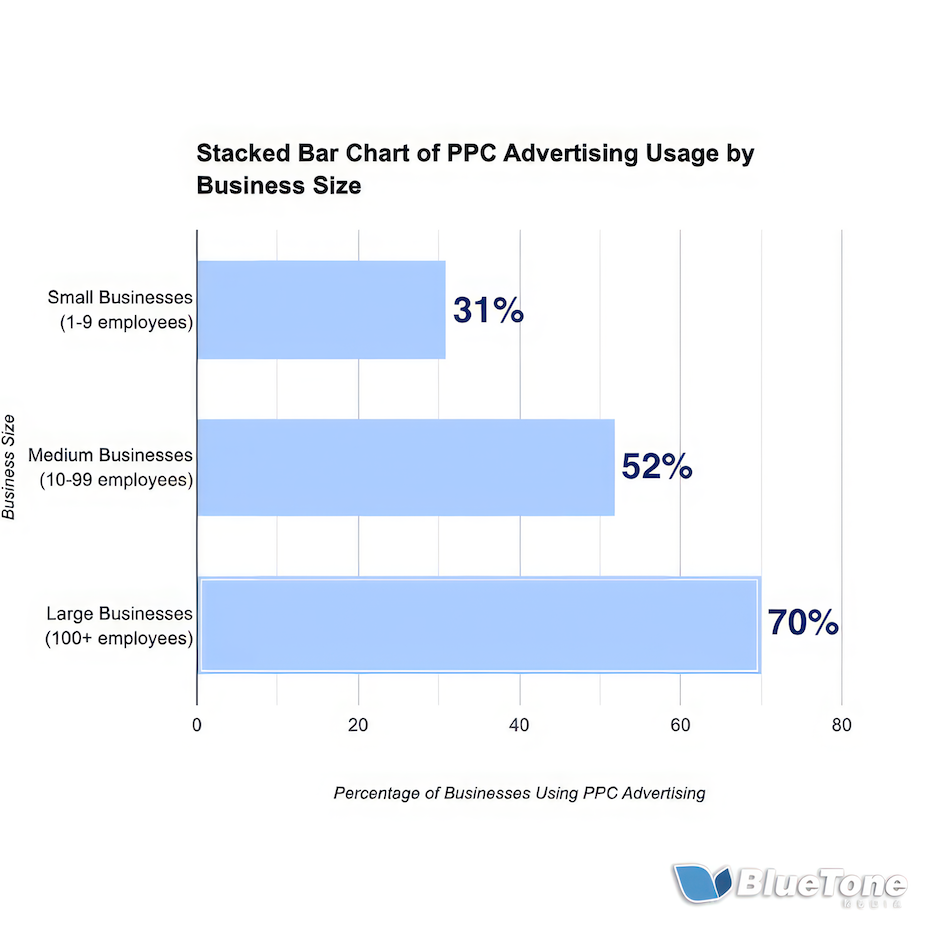Is Pay Per Click Advertising Worth It for Your Business? Here's the Answer
By: Hayden Jarman

As a digital marketing strategist, I often encounter clients skeptical about the effectiveness of Pay Per Click (PPC) advertising.
In a world where marketing budgets are constantly scrutinized, it's crucial to invest in strategies that yield tangible results.
This brings us to the pivotal question: Is PPC advertising worth it?
Key Takeaways:
- PPC advertising is a dynamic tool in digital marketing, offering targeted reach and measurable results.
- It's suitable for a wide range of industries, with varying costs influenced by several factors.
- Small businesses and B2B companies can particularly benefit from well-executed PPC strategies.
Table of Contents:
- What is Pay-Per-Click (PPC) Advertising?
- Examples of Successful PPC Campaigns
- What Does PPC Cost on Average?
- Advantages and Disadvantages of PPC
- Is PPC Worth It for Your Small Business?
- Does PPC Work for B2B?
- How Does PPC Work?
- How to Use Google Analytics 4 to Help PPC
- Do Google Reviews Impact PPC?
- How to Find the Best Keywords for PPC
- Local Services Ads vs. PPC Ads
- Why You Should Promote Your New Website with PPC
- Should You Use Video Ads in PPC?
- Frequently Asked Questions
What is Pay-Per-Click (PPC) Advertising?
PPC advertising, at its core, is a model of internet marketing where advertisers pay a fee each time their ad is clicked.
It's essentially a way of buying visits to your site, rather than attempting to "earn" those visits organically.

Basic Mechanics of PPC Campaigns
- Ad Placement: Ads are placed on search engine results pages (SERPs), social media platforms, and websites.
- Bidding and Costs: Advertisers bid on the perceived value of a click in relation to the keywords, platforms, and audience type they are targeting.
- Targeted Nature: PPC allows for highly targeted advertising, reaching specific audiences based on demographics, interests, and online behaviors.
Global PPC Spending Trends
| Year | Global PPC Spending (in billion USD) |
| 2021 | 190.0 |
| 2022 | 210.0 |
| 2023 | 236.5 (expected) |
Source: Statista
Examples of Successful PPC Campaigns
Real-world examples underscore the versatility and effectiveness of PPC advertising across various industries.
For instance, a local real estate firm significantly boosted its lead generation through a targeted PPC campaign.
Details on their strategy and results can be found in this case study.
Key Factors for Success
- Industry Adaptability: PPC works for a diverse range of industries from real estate to healthcare.
- Campaign Goals: Whether it's brand awareness or lead generation, PPC can be tailored to meet specific objectives.
- Success Analysis: Understanding what worked is crucial. For instance, high click-through rates (CTR) and conversion rates are good performance indicators.
What Does PPC Cost on Average?
There's a common misconception that PPC is prohibitively expensive.
However, the cost varies significantly based on industry, keywords, and campaign settings.
Average PPC Cost Benchmarks
- United States Average CPC: $2.69.
- Industry Variations: Highly competitive industries like legal services may have higher CPCs.
- Campaign Settings: Costs can be controlled through budget caps and bid strategies.
Source: WordStream
Advantages and Disadvantages of PPC
PPC, like any marketing strategy, comes with its pros and cons.
Advantages
- Targeted Reach: PPC ads reach the audience at the right time with the right message.
- Measurable Results: Everything from the number of clicks to sales can be tracked.
- Quick Campaign Launch: Unlike SEO, PPC can show results almost immediately.
Disadvantages
- Cost Fluctuations: The cost-per-click can vary based on competition and market trends.
- Ongoing Management: PPC campaigns require constant monitoring and adjustments for optimum performance.
Considering these factors, 70% of marketers use PPC advertising primarily for lead generation.
Source: HubSpot
Is PPC Worth It for Your Small Business?
For small businesses, PPC advertising can be a game-changer, provided it aligns with their budget, target audience, and campaign goals.

Factors to Consider
- Budget: Small businesses need to balance PPC spending with overall marketing budgets.
- Target Audience: PPC allows for precise targeting, a significant advantage for niche markets.
- Campaign Goals: Clear objectives help in creating focused PPC campaigns.
A study by Small Business Trends revealed that 61% of small businesses find PPC effective in reaching their target audience.
Source: Adzooma
Does PPC Work for B2B?
PPC is not just for B2C markets; it's equally effective in the B2B sector.
Tailoring PPC campaigns to reach decision-makers and generate qualified leads is key for B2B success.
B2B PPC Strategies
- Target Decision-Makers: Use LinkedIn and other B2B platforms for targeted advertising.
- Generate Qualified Leads: Create offers and content that appeal to a professional audience.
- Case Studies: Highlighting successful B2B PPC campaigns can provide insights and strategies for similar success.
A study highlights that PPC can be an effective way for B2B businesses to generate leads and close deals.
Source: LinkedIn
How Does PPC Work?
Understanding the PPC process is essential for successful campaign management.
Step-by-Step Breakdown
- Keyword Selection: Choosing the right keywords is crucial for targeting the right audience.
- Ad Creation: Crafting compelling ads that resonate with the target audience.
- Campaign Optimization: Continuously testing and tweaking campaigns for better performance.
Ad Auctions and Bidding Strategies:
- The ad auction is an automated process that determines the placement and cost of ads.
- Bidding strategies can be set to maximize clicks, impressions, or conversions.
Landing Pages:
- Landing pages must be optimized for conversion, providing a seamless user experience from ad click to action.
How to Use Google Analytics 4 to Help PPC
Google Analytics 4 (GA4) is an indispensable tool for tracking and improving PPC campaign performance.
Integration and Tracking
- Integrate GA4 with PPC Campaigns: This allows for comprehensive tracking of user behavior and campaign effectiveness.
- Key Metrics: Monitor metrics like conversion rates and bounce rates to gauge campaign success.
For detailed guidance on integrating Google Analytics 4 with PPC campaigns, click here.
Do Google Reviews Impact PPC?
Google Reviews can significantly influence the success of PPC campaigns.
Positive reviews not only enhance ad quality scores but also potentially lower click-through costs, thereby making your ads more cost-effective and trustworthy.
The Role of Google Reviews in PPC
- Ad Quality Scores: Higher quality scores can result from positive reviews, leading to better ad placements and lower costs.
- Trust and Credibility: Prospective customers often trust peer reviews, making positive feedback a powerful tool for PPC success.
Managing Google Reviews:
| Strategy | Description |
| Encourage Reviews | Ask satisfied customers to leave a review. |
| Respond to Reviews | Engage with both positive and negative reviews. |
| Leverage Good Reviews | Highlight them in marketing materials. |
For more on managing Google Reviews, check out this insightful article.
How to Find the Best Keywords for PPC
Selecting the right keywords is crucial for PPC success. This involves a balance between broad match and phrase match keywords to capture the right audience.
Keyword Research Tools and Techniques
- Keyword Research Tools: Utilize tools like Google Keyword Planner for identifying relevant and high-performing keywords.
- Broad vs. Phrase Match: A mix of these can capture a wider audience while still being specific to your target.
Keyword Selection Strategy:
| Keyword Type | Use Case |
| Broad Match | To reach a wide audience. |
| Phrase Match | To target specific customer segments. |
For a detailed guide on keyword research, visit this link.
Local Services Ads vs. PPC Ads
Understanding the difference between Local Services Ads and traditional PPC ads is vital, as each has unique benefits and drawbacks.
Comparison of Ad Formats
- Local Services Ads: These are more targeted towards local businesses and services, appearing at the top of local search results.
- PPC Ads: More versatile, they appear in various online platforms and are suitable for a broader range of businesses.
Ad Format Suitability:
| Ad Format | Best For |
| Local Services Ads | Local businesses and services. |
| PPC Ads | Broader online presence. |
For further insights on choosing the right ad format, consider reading this article.
Why You Should Promote Your New Website with PPC
Promoting a new website with PPC can rapidly increase visibility, drive traffic, and generate leads, providing a quick boost to your online presence.
Advantages of PPC for New Websites
- Immediate Visibility: PPC helps in quickly getting your new site in front of potential customers.
- Lead Generation: It can be an effective tool for converting traffic into leads and sales.
PPC Strategy for New Websites:
| Strategy | Description |
| Targeted Campaigns | Use PPC to target specific customer segments. |
| Track and Optimize | Monitor performance and make necessary adjustments. |
Explore more about this strategy in this HVAC marketing case study.
Should You Use Video Ads in PPC?
Incorporating video ads into your PPC strategy can increase engagement and potentially lead to higher conversion rates.
However, it's crucial to determine if they align with your overall marketing goals and target audience.
Benefits of Video Ads
- Engagement: Videos can capture the audience's attention more effectively than text or images.
- Conversion Potential: They often lead to higher conversion rates due to their interactive nature.
Evaluating Video Ads for PPC:
| Factor | Consideration |
| Audience Preference | Does your target audience engage with videos? |
| Content Quality | Can you produce high-quality, engaging videos? |
For more on video ads in PPC, check out this paid media advertising guide.
Final Thoughts
PPC advertising offers a versatile and effective way for businesses of all sizes to reach their target audience, increase website traffic, and boost sales.
With the right strategy, targeted approach, and ongoing optimization, PPC can be a valuable addition to your digital marketing toolkit.
Key Takeaways:
- PPC advertising provides targeted reach and measurable results.
- It's suitable for a diverse range of industries and goals.
- The effectiveness of PPC can be enhanced through the strategic use of keywords, Google Reviews, and the right choice of ad formats.
For those considering PPC or looking to improve their existing campaigns, it's vital to stay informed, track performance, and be willing to adjust strategies as needed.
Always feel free to explore further resources and seek professional assistance to ensure the best outcomes for your PPC endeavors.
Related Posts:
- Understanding Google’s Local Pack: How to Get Featured
- Google Business Profile FAQs: Everything You Need to Know
- The Best Google Ads Extensions to Boost Your Click-Through Rates
- How to Leverage Facebook Groups for Local Business Leads
- How to Use AI to Write Better Social Media Captions
- How to Optimize Google Reviews to Attract More Customers
- LinkedIn for B2B Marketing Success
- How to Conduct a Social Media Audit (w/ "Audit Readiness" Quiz!)
- Creating a Content Calendar for Consistent Posting
- The Importance of Mobile Optimization in 2024
- Data Privacy Regulations: What Marketers Need to Know
- The Role of Chatbots in Enhancing Customer Service
- SEO for Small Business: The Ultimate Guide to Getting Found Online
- The Role of Keyword Clustering in Modern SEO
Frequently Asked Questions
1. Is Pay Per Click Advertising Worth It?
- Pay Per Click advertising is worth it for businesses looking to drive targeted traffic to their website quickly. It offers precise targeting options, immediate results, and the ability to track ROI effectively. However, its worth depends on the business's goals, industry, and management of the campaign.
2. What Is The Success Rate Of Pay-Per-Click?
- The success rate of Pay-Per-Click varies widely depending on industry, target market, and campaign quality. A well-managed PPC campaign can have a high success rate, often reflected in an increased click-through rate (CTR) and conversion rate.
3. What Are The Disadvantages Of Pay-Per-Click Advertising?
- The disadvantages of Pay-Per-Click advertising include the potential for high costs, especially in competitive industries, the need for constant monitoring and optimization, and the risk of click fraud. Additionally, PPC requires a strategic approach to ensure ROI, which can be challenging for those without experience.
4. Is Pay-Per-Click Profitable?
- Pay-Per-Click can be profitable if managed effectively. Profitability depends on factors like the choice of keywords, ad quality, landing page experience, and ongoing optimization. A well-structured PPC campaign can yield a positive return on investment.
5. Is Pay-Per-Click Outdated?
- Pay-Per-Click is not outdated; it continues to be a relevant and effective digital marketing strategy. While the landscape of online advertising is evolving, PPC remains a key component due to its targeted approach and measurable results.
6. How Long Does Pay-Per-Click Take To Work?
- Pay-Per-Click campaigns can start working almost immediately after launch. However, seeing significant results in terms of conversions or ROI might take a few weeks or months, depending on the campaign's optimization and competitive landscape.
7. What Is The Most Used Pay-Per-Click Platform?
- The most used Pay-Per-Click platform is Google Ads. It's widely recognized for its extensive reach, advanced targeting options, and integration with other Google tools.
8. How Much Does Pay-Per-Click Cost?
- The cost of Pay-Per-Click varies greatly depending on factors like industry competitiveness, keyword difficulty, and geographic targeting. Costs can range from a few cents to several dollars per click.
9. Which Is Better Pay-Per-Click Or SEO?
- Whether Pay-Per-Click or SEO is better depends on the business objectives. PPC offers quick results and precise targeting, while SEO provides long-term, organic growth. Many businesses find a combined approach to be most effective.
10. Why Do Companies Use Pay-Per-Click?
- Companies use Pay-Per-Click for its ability to drive immediate traffic to their websites, target specific audiences, and provide measurable results. PPC is flexible, scalable, and can be adjusted to meet diverse marketing goals.

